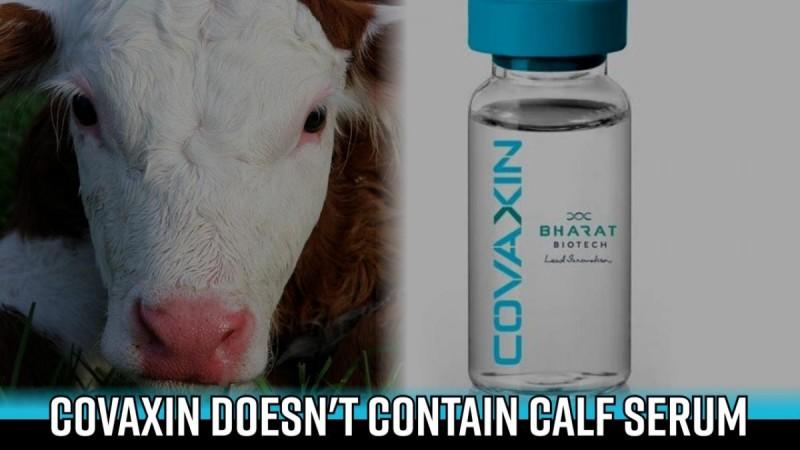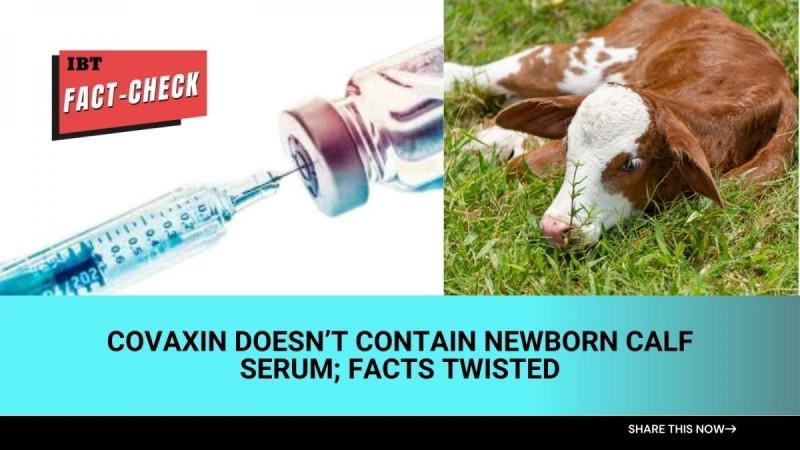A staggering number of people who have taken the COVID jab or registered for it have been unaware of how does a calf serum associates with the shot. A day after Central Government released a clarification that Covaxin does not contain newborn calf serum, comes a request by PETA spotlighting the process of vaccine production.
Animal rights group People for Ethical Treatment of Animals (PETA) India requested Drugs Controller General of India (DCGI) to replace the calf serum method for COVID vaccine production with an animal-free chemical solution. The request, made via a letter written on Thursday, is addressed to DCGI's Dr. V.G Somani to further direct vaccine manufacturing companies to consider switching to animal-free media.
The letter followed the report that India's home-grown COVID-19 vaccine, developed by Bharat-Biotech in collaboration with the Indian Council of Medical Research (ICMR), is made using the newborn calf serum method. This serum extracted from the blood of slaughtered calves under 20 days old. These calves are first separated from their mothers which traumatizes both the mother and the calf, PETA claims.
The issue first came to light when Congress leader Gaurav Pandhi posted an RTI document on his Twitter account, according to which Covaxin contains the serum of a newborn calf.

On the alternative to animal serum
PETA has been leading the campaign to end the use of animals for the production of serum. Apart from the ethical considerations in using animals, PETA argues that it is both urgent and necessary to modernize methods of vaccine production for several reasons. It says the use of animal-derived serum could delay vaccine production. Further, it could also compromise the quality as there is a risk of contamination by non-human proteins and pathogens.
"Animal-free media are already commercially available and can be used to grow Vero cells for virus production instead of using NBCS extracted by slaughtering calves," said the letter.
"PETA India and its affiliate scientists have been leading efforts to end the use of animals for the production of serum. PETA Science Consortium International, of which PETA India is a member, has online resources that researchers can use to replace foetal bovine serum and NBCS in cell culture media."
What the law says
Numerous states in India have banned the slaughter of cows and calves, even bulls and buffaloes. The Prevention of Cruelty to Animals (Slaughterhouse) Rules, 2001, prohibits the slaughter of pregnant animals and animals under three months of age.
The act prohibits inflicting, causing or permitting unnecessary pain or suffering to be inflicted on any animal. Accordingly, using serum obtained by killing a 20-day-old calf for vaccine production should not be allowed, since it was also unnecessary as alternative methods are available, added the letter.
What the GoI says

In a statement issued almost immediately after the issue was raised, the Union Health Ministry said: "Facts have been twisted and misrepresented in these posts. Newborn calf serum is used only for the preparation/growth of vero cells. Different kinds of bovine and other animal serum are standard enrichment ingredient used globally for vero cell growth. Vero cells are used to establish cell lives which help in production of vaccines.
This technique has been used for decades in Polio, Rabies and influenza vaccines." The statement further elaborated on the process of vaccine production wherein vero cells, after growth, are washed with water, chemicals. Thereafter they are infected with coronavirus for viral growth. It is in this process of viral growth they are completely destroyed. "Hence the final vaccine does not contain newborn calf serum at all and the calf serum is not an ingredient of the final vaccine product."

















